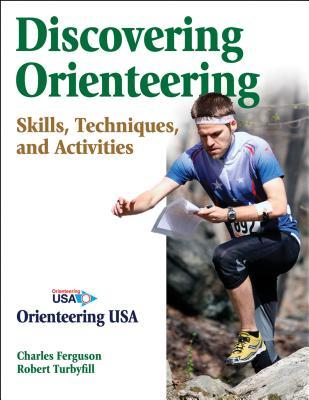Engaging the mind and toning the body, orienteering offers a mind-body workout that builds confidence, problem-solving skills, and an appreciation for the natural environment. Written in an engaging manner, Discovering Orienteering: Skills, Techniques, and Activities offers a systematic approach to learning, teaching, and coaching orienteering. Discovering Orienteering presents the basic skills and techniques of the sport for beginners. It also functions as a review for advanced orienteers, featuring stories of orienteering experiences to illustrate the fun, challenge, and adventure of the sport.
An excellent resource for physical educators, recreation and youth leaders, and orienteering coaches, Discovering Orienteering distills the sport into teachable components relating to various academic disciplines, provides an array of learning activities, and includes an introduction to physical training and activities for coaching beginning to intermediate orienteers. Guidelines take eager beginners beyond the basics and prepare them to participate in orienteering events. More than 60 ready-to-use activities assist educators in applying the benefits of orienteering across the curriculum.
Developed in conjunction with Orienteering USA (OUSA), Discovering Orienteering addresses the methods, techniques, and types of orienteering commonly found throughout the United States and Canada. Authors Charles Ferguson and Robert Turbyfill are experienced orienteers with expertise as trainers and elite competitors. Ferguson and Turbyfill also have backgrounds in education with a variety of teaching experiences, lending to the book's utility as a resource for introducing orienteering in a physical education or youth recreation setting.
Discovering Orienteering begins by explaining the basics of orienteering, including a brief history of the sport followed by information on fitness, nutrition, safety, and tools and equipment. After this introduction, readers learn orienteering skills, techniques, and processes using the OUSA's systematic teaching and coaching methodology.
Next, readers learn how to apply these skills, techniques, and processes to an event situation. Orienteering ethics and rules are discussed, including the ethical use of special equipment. Information is also included to help readers prepare for and compete in an orienteering event.
Activities in the appendix are presented in a concise lesson plan format indicating the skills or techniques covered in the activity, level of expertise required, and equipment needed.
Discovering Orienteering: Skills, Techniques, and Activities offers an excellent introduction to the sport for beginniners and a comprehensive resource for educators, youth leaders, and coaches. With its systematic approach, Discovering Orienteering can help readers chart a course to fun and adventure in the great outdoors.
